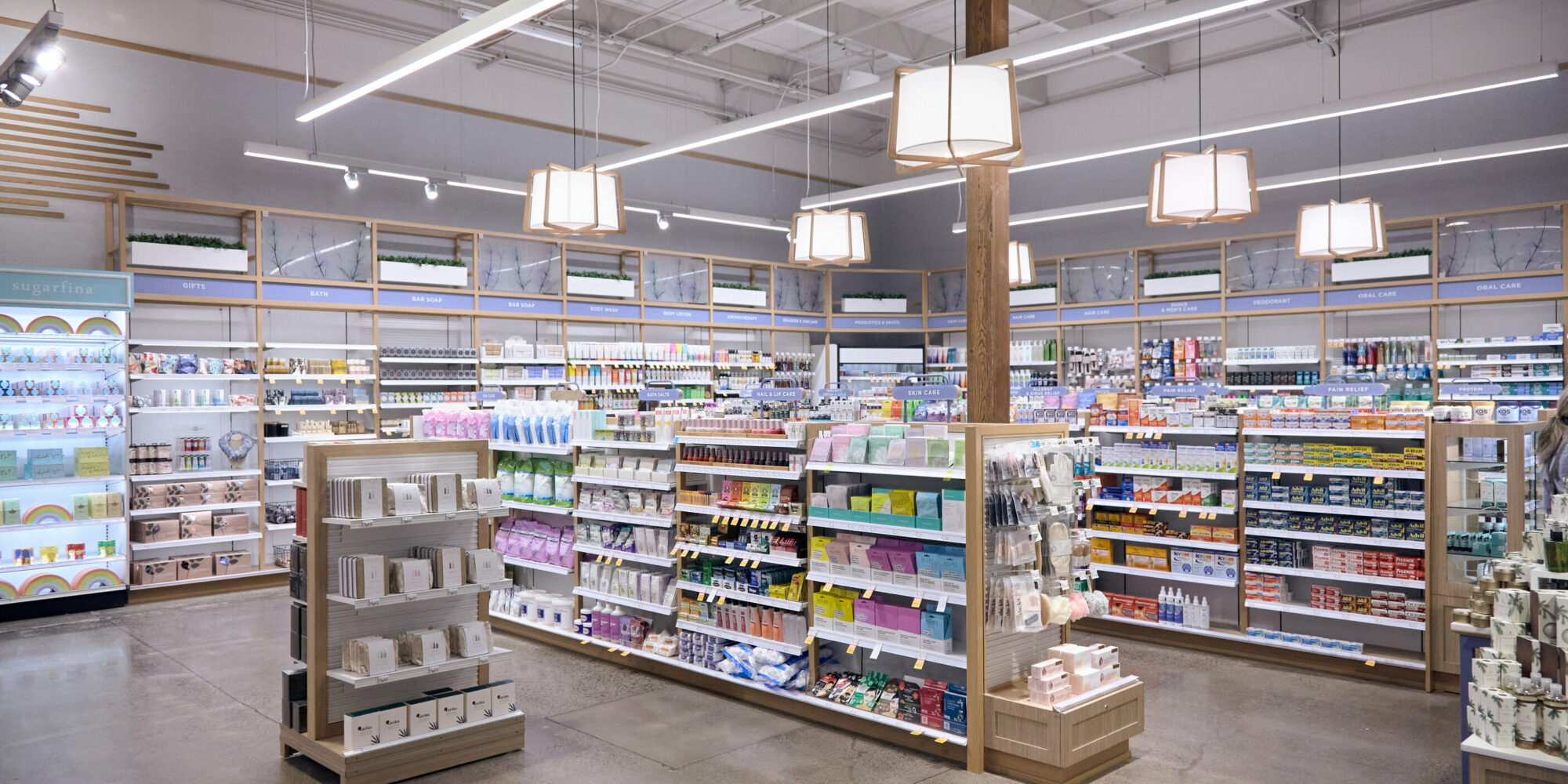
How A Former Whole Foods Buyer Is Turning Metropolitan Market Into A Wellness Destination
Metropolitan Market wants to turn its wellness aisle into an upscale shopping destination.
To spearhead the initiative, the grocery chain grocer tapped Shanon Herzer, a former broker and buyer for Whole Foods who joined Metropolitan Market three years ago as its wellness category manager. “I’m building a destination where people come in just to go to my department,” she says. “We happen to be living in a grocery store, but we merchandise a bit more like a gift store.”
Metropolitan Market operates nine brick-and-mortar stores clustered in the Seattle and Tacoma area that average 32,000 square feet in size. The wellness aisle constitutes roughly 1,100 square feet of the total space, although the size can vary depending on the location. Herzer discloses wellness accounts for about 2% of Metropolitan Market’s business, but is expected to increase. She says, “People are looking for a different experience here and are willing to invest more in the products that we have.”
Metropolitan Market has brightened lighting and elevated fixtures in the wellness aisle to highlight it as a place where customers can discover products they wouldn’t normally encounter at a grocery store. It carries around 5,000 wellness and personal care items from approximately 540 brands. Legacy brands like Dove, Tom’s of Maine, Burt’s Bees, Aveeno and Neutrogena constitute about 80% of the brand portfolio, with indie brands responsible for the balance. Emerging brands on shelf range from ones that are fast-scaling or venture capital-backed like Beekeeper’s Naturals and Murphy’s Naturals to those producing in small batches like bath and body brand Latika Beauty.
Latika is a bestselling brand along with Olly, Sylling’s Elderberry, Vital Proteins, Dana Herbert Accessories, Garden of Life, Liquid IV, Sprout Living, Pre de Provence and Weleda. Metropolitan Market taps Adit, a retail matchmaking service owned by Beauty Independent parent company Indie Beauty Media Group, to assist with sourcing brands.
Supplements for stress, sleep, mood and energy have been flying off the shelves as have vitamin-infused gummies and chocolates. Face masks, aromatherapy products, nail polish and bath and body offerings are experiencing heightened traction, too. Self-care and creating an at-home spa environment are two trends resonating with wellness customers at Metropolitan Market. “People want to be able to modulate their feelings, and they want products to help them with that. They also want to feel pampered at home,” says Herzer. “Both are going strong, and I don’t see either slowing down.”
Going forward, she’s looking to shake up the grocer’s hormonal support and period care selection. “I want to have more options there,” says Herzer. “Period care, in particular, has been really stagnant for a long time, and I think that there’s a lot of innovation happening.” Sexual wellness products are on her radar, but would have to be carefully edited to suit the grocery channel.
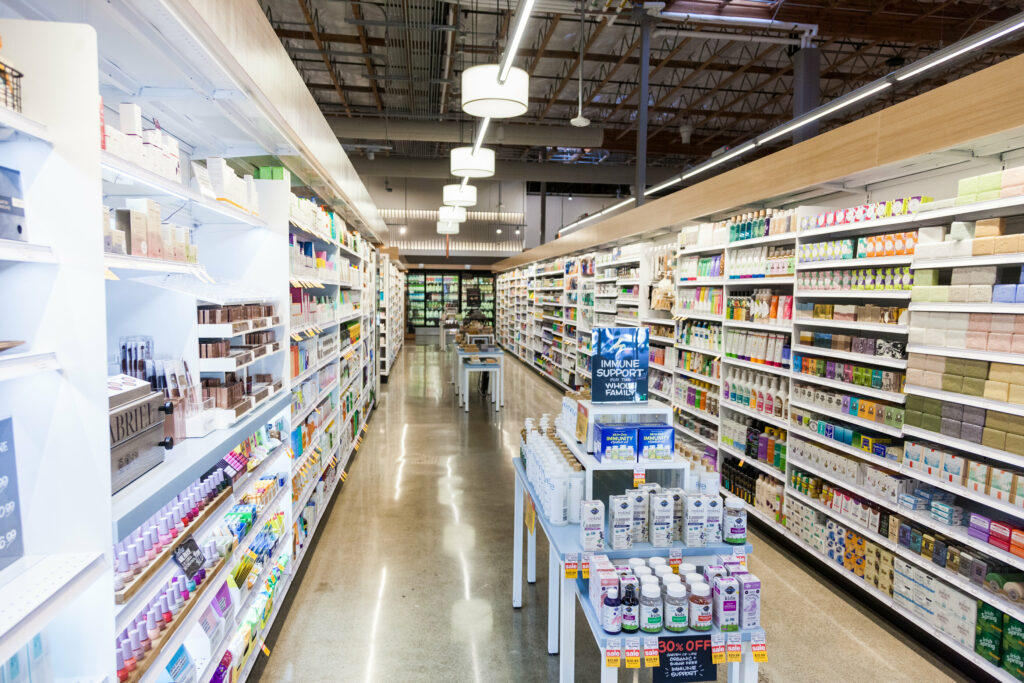
Metropolitan Market isn’t the only regional grocery chain supercharging its wellness section. The Southern California luxury grocer Erewhon has been snapping up and collaborating with buzzy direct-to-consumer beauty and wellness brands of late such as Uni and Perelel. Emerging brands may play a larger role at Metropolitan Market going forward, especially as larger national brands struggled with stock levels and production issues this year. “There’s a lot of opportunity for smaller brands right now,” says Herzer.
At least three sales associates are on staff at each Metropolitan Market location in the wellness aisle to guide customers, a level of service Herzer points out is characteristic of beauty-focused retail rather than grocery. “They can walk a customer through saying, ‘Let me build a gift basket for you. Let me wrap that for you. What are you looking for? Great. I’ve got this for you.’ And they can say, ‘Oh, this is the one that I use, so you’re going to love this’ That’s not your normal grocery experience,” she says. “It’s what you’d expect in a boutique or a Credo store.”
The grocer’s high-touch service means that brands interested in working with it have to educate store staff as well as provide free product, testers and samples. Illustrating value on packaging is another important criteria that Herzer typically looks for, particularly for higher priced items. While the wellness shopper at Metropolitan Market is willing to splurge on an item, they won’t shell out $18 for a celebrity smoothie collaboration without thinking about it like a shopper at Erewhon might.
“People are looking for a different experience here and are willing to invest more in the products that we have.”
“My customer isn’t usually a trade-down customer, but they still are asking why they’re paying a certain price,” says Herzer. “So, we can still sell that $19 shampoo bar, but it’s because the customer is getting this amazing value for it. They need to see that value for their investment.”
The average wellness customer at Metropolitan Market is a college-educated woman aged 30 or above with an average income between $70,000 to $100,000-plus who shops the assortment on a monthly basis. Masstige-priced products generally perform the best, although shoppers tend to buy within three price buckets at the grocer: under $10, under $20 and under $50. Pricing buckets aren’t completely the same across categories, though, says Herzer. For instance, face creams run from $7 to $65 in the grocer’s assortment.
To ensure new brands are reaching Metropolitan Market’s customer base, launch promotions in wellness generally last anywhere from 30 to 60 days across its nine stores. The extent of the savings is driven by the category, event or season, says Herzer. Supplements face the fiercest competition, notably from online retailers, and supplement discounts typically go from a minimum of 25% off to buy-one-get-one offers. Topical products usually get slashed by 15% to 20% during promotions, while masstige products are discounted between 25% and 40%. Prestige products are discounted the least.
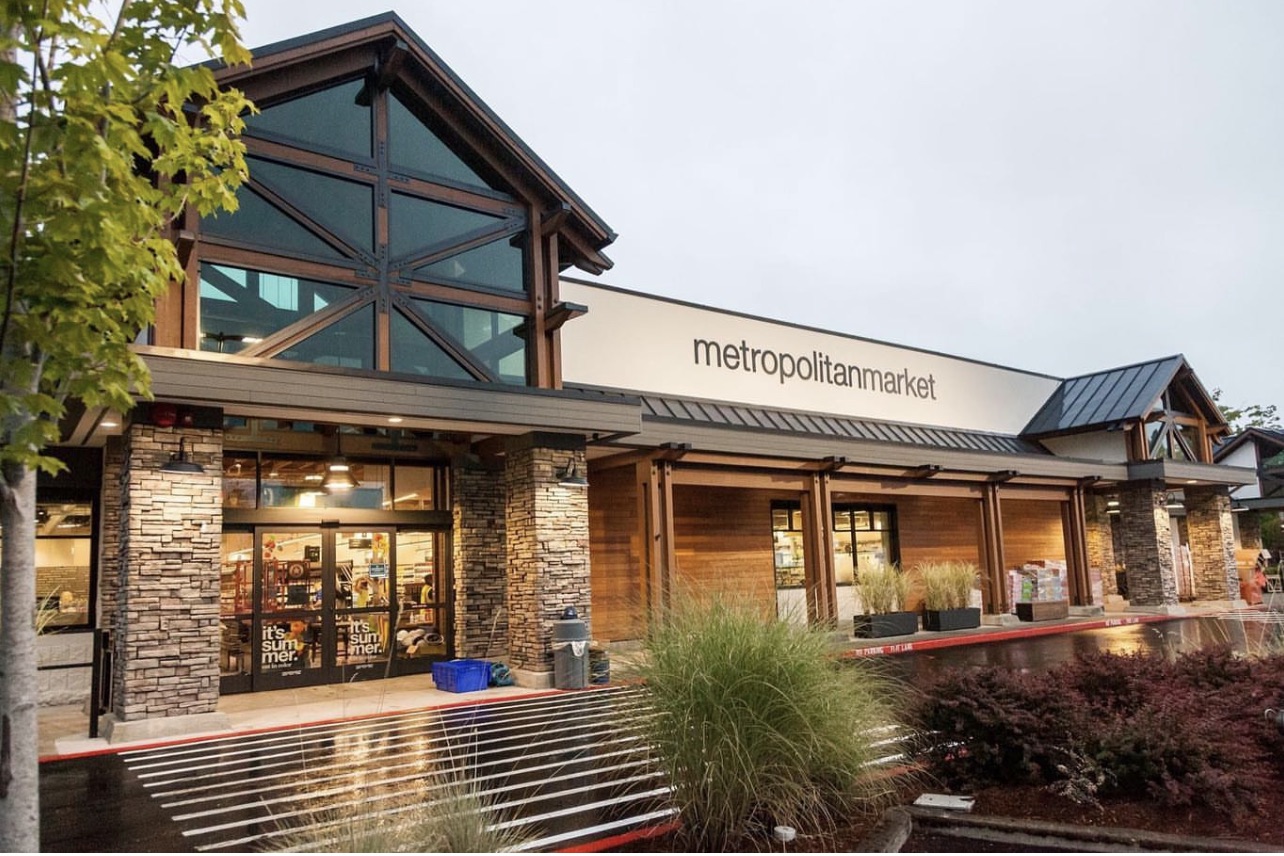
Herzer acknowledges that brands can be weary of grocery’s reliance on promotions to sell products. “I have the hardest time with promotions because we are in that environment. I still have to be able to promote a product or it’s probably not going to work out,” she says. “I often ask brands, ‘Do you want to be off-shelf? Do you want to be put in our ads? Do you want to be on our social media? The answer is yes.’”
Successful brands at Metropolitan Market usually participate in four promotions a year, but Herzer has made exceptions in the past for small brands that have caught her eye. “If a brand is super tiny, but I love them, and I really want to push them, we’ll work something out,” she says. “I always say that I’m flexible, but it still has to make sense.”
Metropolitan Market uses a 50% wholesale margin and charges brands a prefill or slotting allowance in which it asks for three free products for every three products it buys. Marketing fees can be anywhere from $1,000 to more than $5,000. Sitting on the table display in the middle of the aisle can cost a brand over $1,000. However, non-shelf displays can be discount- or deal-based.
Metropolitan Market established its first store in Seattle as Queen Anne Thriftway in 1971 and quickly differentiated itself as a purveyor of hard-to-find grocery items. It rebranded to Metropolitan Market in 2003. In 2012, the firm Endeavour Capital invested in it. Today, Metropolitan Market is part of Good Food Holdings, a holding company with a portfolio housing four other regional West Coast grocers: Bristol Farms, Lazy Acres Natural Market, New Leaf Community Markets and New Seasons Market.

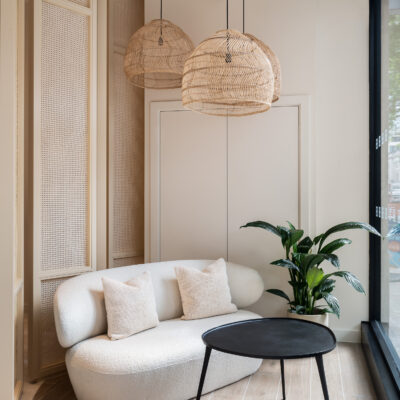
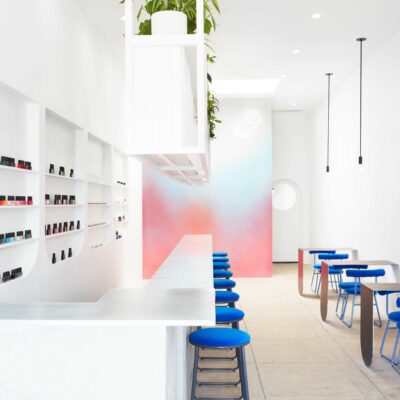
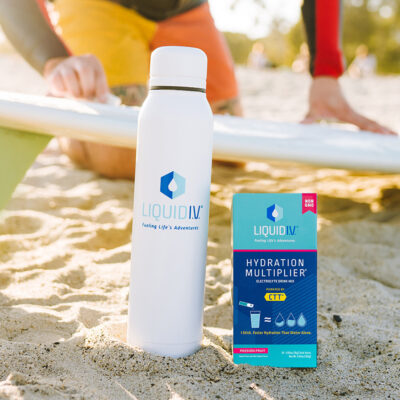

Leave a Reply
You must be logged in to post a comment.